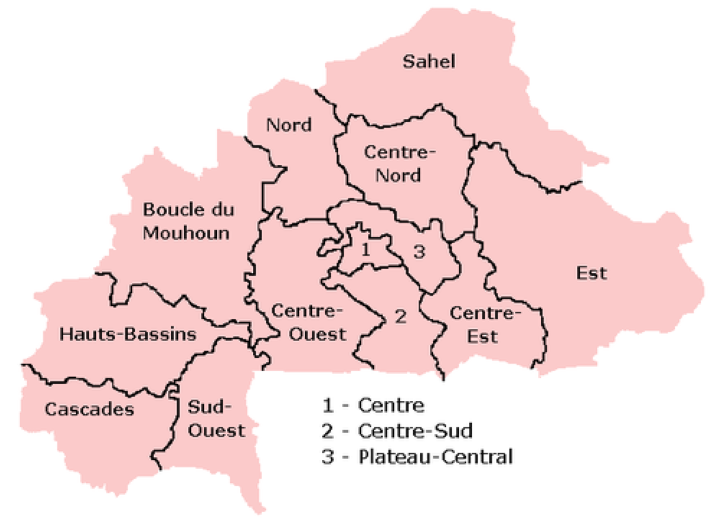
Burkina Faso has redrawn its administrative map, expanding from 13 to 17 regions and from 45 to 47 provinces in what authorities describe as the most significant overhaul of local governance in decades.
The changes were approved on Wednesday, 2 July, during the weekly Council of Ministers meeting chaired by President Captain Ibrahim Traoré.
Speaking after the session, government spokesman Pingdwendé Gilbert Ouédraogo said the new structure would “strengthen strategic defence and bring administration closer to communities.”
Under the plan, two additional provinces have been created: Dyamongou, with Kantchari as its capital, and Karo‑Peli, centred on Arbinda. Four new regions have also been introduced:
-
Soum – capital Djibo
-
Sirba – capital Bogandé
-
Tapoa – capital Diapaga
-
Sourou – capital Tougan
They join 13 existing regions that have all been given indigenous names to foreground local identity.
Among them, Kadiogo (Ouagadougou), Guiriko (Bobo‑Dioulasso) and Liptako (Dori) are now officially designated in national languages.
Explaining the rationale, State Minister for Territorial Administration Emile Zerbo said the reshuffle places security considerations at its core.
“Taking this security dimension into account, the former regions of Boucle du Mouhoun, Est, and Sahel, which together represent 43 % of the national territory, have been reorganised. This reorganisation has resulted in the creation of four new regions and new provinces,” he told reporters.
Several provinces have also adopted new names: Sanmatenga becomes Sandbondtenga, Oubritenga is now Bassitenga, Soum takes the historic title Djelgodji, and Kossi will be known as Kossin.
Ministers said a six‑month transition period would allow officials to install new administrations, update signage and revise legal documents. Civil servants are expected to be reassigned, and electoral boundaries will be adjusted ahead of future polls.
Supporters argue the measure will boost local participation and make it easier for security forces to respond to threats in Burkina Faso’s vast northern and eastern zones, where armed groups remain active.
Critics, however, warn that creating additional bureaucratic layers could strain public finances already under pressure.
For now, the government insists the reform is essential to delivering services and reaffirming state presence across hard‑to‑reach areas—an ambition that hinges on the swift and effective roll‑out of its newly minted provinces and regions.



